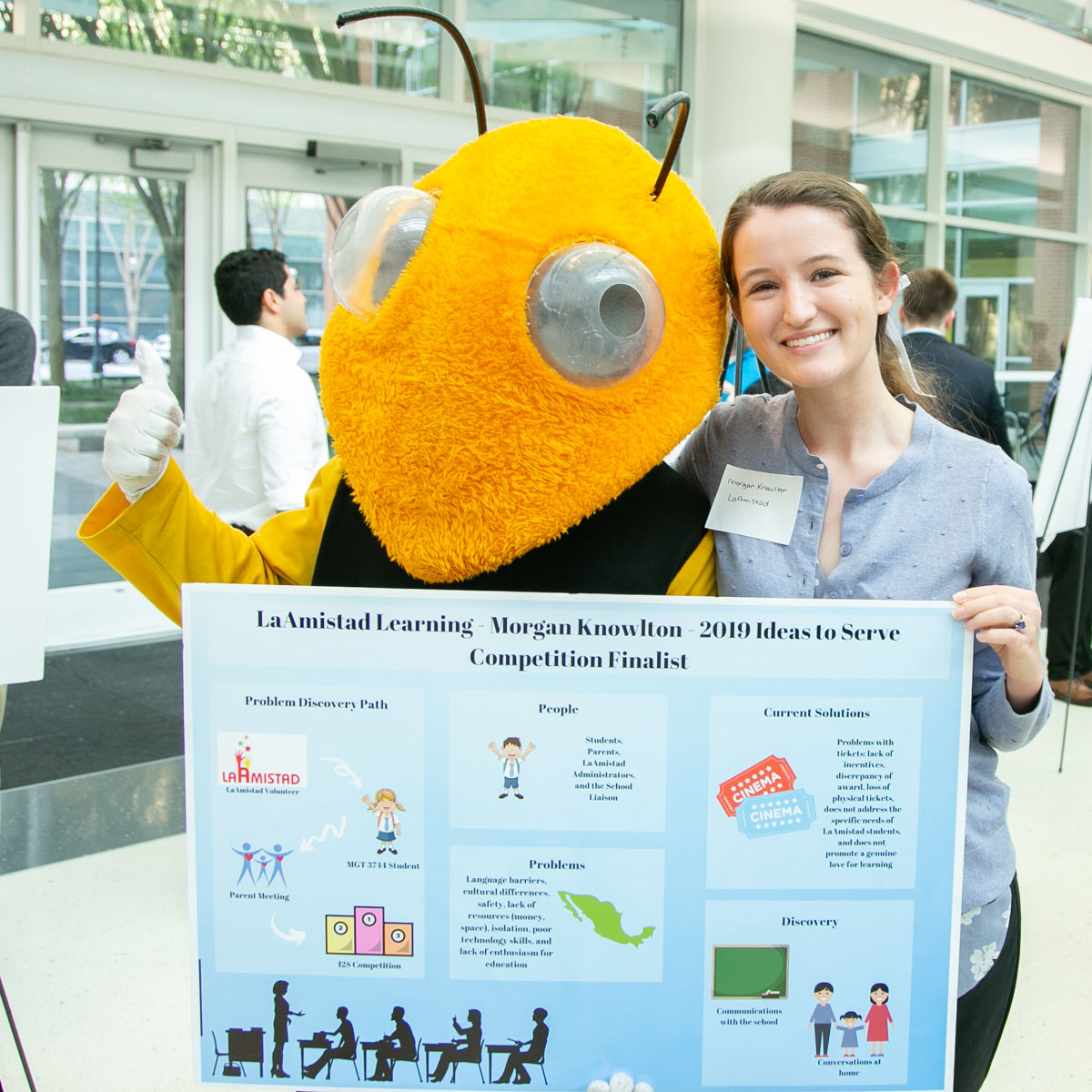By ISyE fourth-year undergraduate Morgan Knowlton
LaAmistad (Spanish for “the friendship”) is an after-school program designed to support Latino families in Atlanta. Bill Maness, a former Georgia Tech student, started the charitable foundation in 2001 after he observed that elementary school-aged Hispanic students in his community were struggling in school. Because they came from families who spoke very little English, they were not getting the typical homework assistance that a student that age requires from his or her parents. Maness’s simple after-school tutoring has grown into an award-winning program that offers after-school assistance for students in first through 12th grades at eight locations across Atlanta.
In August 2018, I began volunteering at LaAmistad on a weekly basis. Over the following months I found myself developing a close bond with the LaAmistad students. As a member of the Denning Technology & Management program, I enrolled in a prototyping class (MGT 3744) during the spring semester. When the professor tasked us with developing a product to address an unmet need, I jumped at the opportunity to leverage this assignment in support of the LaAmistad program. Our team decided to switch topics a few weeks into the semester, but I was able to continue the original project independently through the Ideas to Serve Competition (I2S). The competition initially served as an avenue to salvage my vision for the abandoned class project, but as I engaged more deeply with the competition I continued participating as a proponent for the goals of the competition.
The I2S Competition is hosted by the Scheller College of Business, but the principles and values of the competition align with the heart of industrial engineering. This year the competition embraced its mantra of “Know What You Don’t Know” by dedicating more than half of the competition to the Problem Discovery track. In this track students are evaluated on their comprehensive understanding of a social or environmental issue without the pressure of generating a solution.
This approach strongly echoed the structure of MGT 3744 in which the first 70 percent of the course was dedicated to in-depth problem discovery. Our professor cautioned – much to the amusement of his students – that if we had a solution before eight weeks, he “didn’t want to hear it.” I was surprised by the shift in emphasis from my typically solutions-focused engineering classes, yet I recognized that this methodology was highly reminiscent of my extracurricular industrial engineering training. For example, much of the Lean Six Sigma Green Belt training focuses on root cause analysis, and “band-aid solutions” are purported as Public Enemy No. 1 in my process improvement internship.
This idea plays on a common criticism of engineers today: We can design whatever we dream, but our dreams do not perform in the market because we failed to sufficiently understand consumers. As a proud engineer, I certainly fell for the folly. My first step in my problem discovery journey was speaking with the families supported by LaAmistad. I attended a meeting with the students’ parents, introduced myself as a student from Georgia Tech, and asked what I could do to help them. I had previously heard from the Teen Center director that some students only had a square foot of clear space to use while completing their homework. I tried to go into the parent meeting with an open mind, but in my head I was already designing desk solutions for the space constraint.
Pursuing that idea would have been a huge mistake because I would have missed the overarching issue. Over the hour and a half meeting, I repeatedly heard that the biggest frustration from the parents was that their students were skipping class, and this frustration was echoed by the middle school’s parent liaison and staff at LaAmistad. LaAmistad spends $25-35,000 on these students annually, and this money is being wasted if the students do not come to class. The training of the I2S competition helped me discover this underlying, impactful issue.
The problem is not with solutions, but solutions based on underdeveloped problem discovery are problematic. Most of the world rushes through the problem discovery phase, which leads to temporary or even incorrect solutions. I love that the Ideas to Serve competition is teaching students that comprehensive problem discovery is critical to problem-solving, and I hope that this program and its ideals expand to the College of Engineering through widespread promotion of the Ideas to Serve competition and greater emphasis on the contemplation and understanding of complex problems in our core engineering classes.
